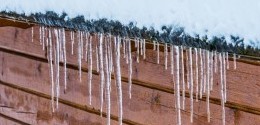When adding fat to the diet for weight gain it is important to insure that the diet remains well balanced. Therefore the most nutritionally complete way to add a fat source to your horse’s diet is to use a higher fat fortified commercial feed fed at their recommended daily intake level. These feeds often have 10-12 % crude fat, not only adding fat to the diet but also essential vitamins and minerals, protein and other nutrients. Oils are a great way of adding fat calories to a ration but provide only calories. Depending on what the rest of the diet is made up of, it is possible when supplementing oil to provide your horse with adequate calories but create a diet that is deficient in other key nutrients especially minerals and vitamins. This could hinder weight gain as these essential nutrients are necessary for proper functioning of metabolic pathways. Another benefit of using fortified high fat feeds is that they tend to contain sources of highly digestible fiber such as beet pulp and almond hulls so you have the benefit of adding cool calories from two different sources; fat and fiber.
to insure that the diet remains well balanced. Therefore the most nutritionally complete way to add a fat source to your horse’s diet is to use a higher fat fortified commercial feed fed at their recommended daily intake level. These feeds often have 10-12 % crude fat, not only adding fat to the diet but also essential vitamins and minerals, protein and other nutrients. Oils are a great way of adding fat calories to a ration but provide only calories. Depending on what the rest of the diet is made up of, it is possible when supplementing oil to provide your horse with adequate calories but create a diet that is deficient in other key nutrients especially minerals and vitamins. This could hinder weight gain as these essential nutrients are necessary for proper functioning of metabolic pathways. Another benefit of using fortified high fat feeds is that they tend to contain sources of highly digestible fiber such as beet pulp and almond hulls so you have the benefit of adding cool calories from two different sources; fat and fiber.
Rice bran is a popular choice due to a fat content of >20% on a dry matter basis. Rice bran should be stabilized and typically has added calcium carbonate to balance the otherwise high phosphorous content. However, few rice brans are otherwise fortified so are unlikely to help with the overall provision of other necessary essential nutrients. Some better quality rice bran products will have added vitamin E. This in part helps maintain the shelf life of the product but also horses with higher fat intakes have higher vitamin E requirements.
It is tempting to pour oil over an existing diet and this will certainly increase calorie intake, however large amounts of oil can back fire. If you overwhelm the small intestine’s ability to digest and absorb fat it will pass into the cecum and large colon where it can disrupt fermentation of fiber. This could actually result in weight loss as the horse would not be able to get as much nutritional benefit from the forage in the diet. Oil should be introduced slowly over 10 to 14 days. An 8 fluid oz measuring cup holds about 10% of a 500 kg horse’s maintenance requirement and is comparable to the energy provided by just over a pound of oats. Even though the horse’s natural diet is relatively low in crude fat horses appear to utilize fat, however it is best to keep supplemental oil intake at no more than about 2 cups per day for an average sized horse.
Oils all have different compositions of fatty acids and recently omega-3 versus omega-6 fatty acids have gained a lot of attention. This is because these fatty acids play important roles in cell membrane fluidity, inflammation and immunity. Both are necessary for these important functions, however relative amounts of each may influence overall response. As a result corn oil is no longer as desirable as those oils with higher omega-3 contents such as canola oil. Flax oil and camelina oil provide more omega-3 than 6 fatty acids and are good choices however in large amounts cost may be inhibitive.
Lastly it is worth considering whether increasing fat is actually the best feeding option for preventing weight loss in winter. Many horses lose weight in the winter due to the additional calorie expenditure used to keep warm. Feeding extra hay not only increases calorie intake but also generates internal heat due to the fermentation process necessary for digestion in the horse’s hind gut. Therefore increasing forage for horses that have good dentition is always my first choice.